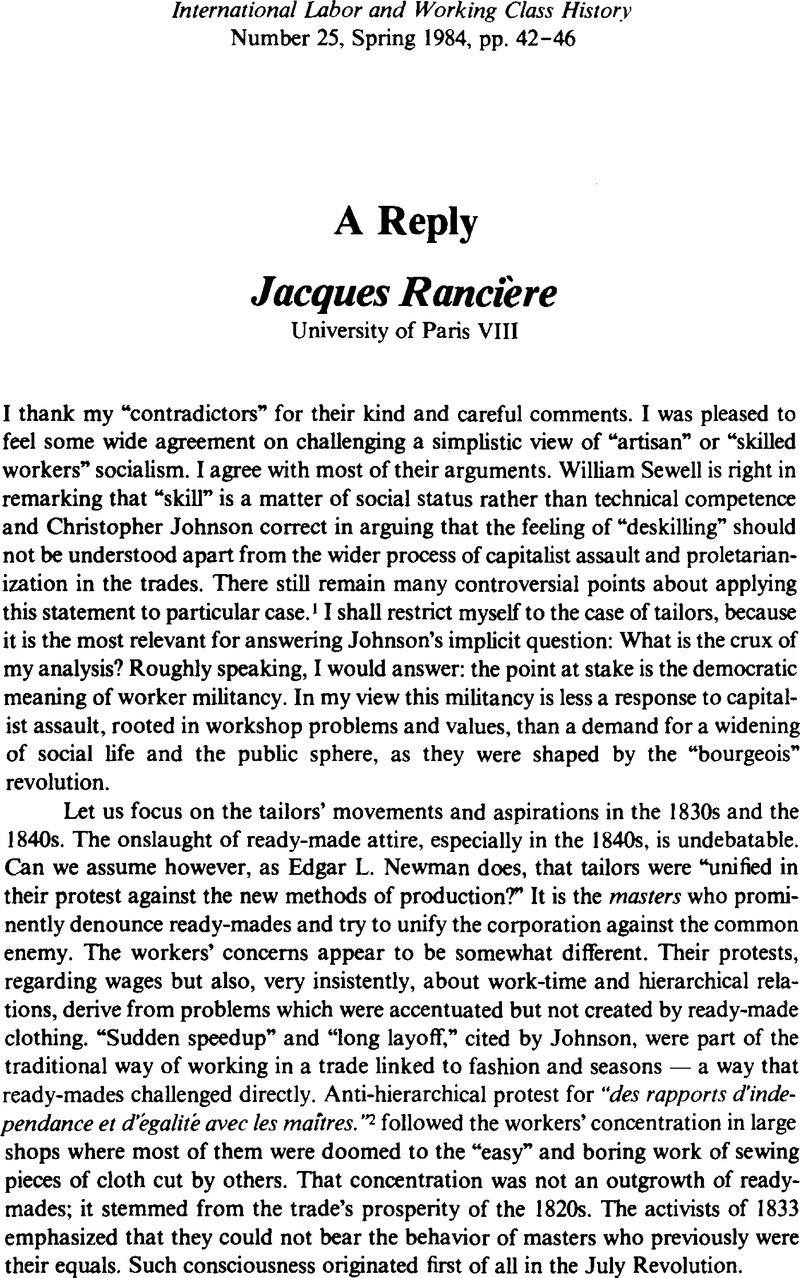Article contents
A Reply
Published online by Cambridge University Press: 16 December 2008
Abstract

- Type
- Letters
- Information
- Copyright
- Copyright © International Labor and Working-Class History, Inc. 1984
References
NOTES
1. For instance, Sewell focuses on two factors of typographers' militance: their prominent access to political language and the threat of mechanical presses. But these presses did not threaten typographers, they threatened the printers strictly speaking, who were coarser workers hardly concerned with culture and political language.
2. Grignon, Reflexions d'un ouvrier tailleur in Faure, and Ranciere, , La Parole ouvrìere (Paris, 1976), p. 79Google Scholar.
3. See for instance this desperate letter from the Society of the tailors of Bordeaux to their brothers of Nantes: “Ce n'est pas aux hommes en dehors de notre société que nous pouvons réclamer du secours, puisque ces malheureux qui sont très nombreux (leur nombre excède de beaucoup celui de notre société) se rient eux-mêmes de notre résolution. Ils se joignent aux occupants pour nous perdre. Ils ont même eu la lacheté de se faire délateurs,” 24 november 1836 (Archives nationales, BB 18/1366)Google Scholar
4. Unlike Johnson, I think that shoemakers had been a “maligned” trade for a long time. Testimonies of contempt against them, within the literate as well as the popular tradition, from Plato until the compagnonnages, are too numerous and persistent to be casual.
5. From that point of view we can understand the failure of communities. Cabet complained that his companions were republican activists, not communist workers. He had two main grievances against them: on the one hand they gave too much to family life, on the other they spent too much time reading and commenting on world news. We can acknowledge here the twofold aspiration to modern individuality in its relation to wider public life. Such was, I think, the real basis of their communist dream. It could hardly be satisfied within the narrow scope of a workers' community. They felt, Cabet bitterly emphasizes, no “pleasure” in the community.
6. See Rancière, J. “De Pelloutier à Hitler. Syndicalisme et collaboration”. Les Révoltes logiques 4 (Winter 1977)Google Scholar.
- 2
- Cited by




